Partners and Funding
Funding
The Münster International Peace Research Initiative (mipri) was funded in 2022/2021 funded through a large grant provided by the German Research Foundation (DFG). In light of the international research marketing idea competition as part of the “Research in Germany” program of the Federal Ministry for Education and Research did the Welcome Centre of the International Office of the University of Münster won this grant.
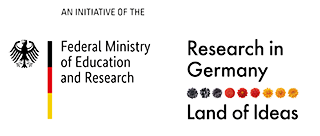
International Partners
Mipri is fortunate to be partners with a number of important research institutes with a strong link to Peace and Conflict Research.
Peace Research Institute Oslo (PRIO)
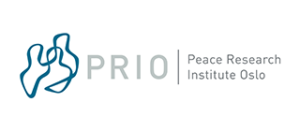
PRIO conducts multidisciplinary research with a strong focus on the forces that drive violent conflicts as well as on the construction, maintenance and dissemination of peace. For more information on PRIO visit: www.prio.org
Institute for European Studies at University California / Berkeley
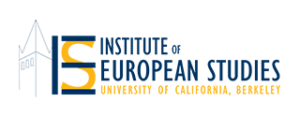
In 1990, UC Berkeley was selected by the Federal Republic of Germany as an institute for one of three Centers of Excellence located in the United States, with the intention to further develop America’s understanding of and relationship to modern political and social developments in both Germany and wider Europe. First founded as the “University of California Center for German and European Studies” and inaugurated by Helmut Kohl, German Chancellor, the Center developed over the next decades with a generous supporting grant from the German government. In the year 2000, the Center merged with the Berkeley Center for Western European Studies to form the institute as we know it today, the IES. Located in the San Francisco Bay Area, the Institute enables strong ties to European and Pacific partners by fostering exchange and connecting researchers through outreach and academic excellence.
The institute for European Studies (IES) has a strong interest in the history of Europe from economic, political and cultural perspectives. These topics are deeply rooted in peace and conflict and this is where IES and mipri are exploring the overlap between our common interests. If you like to know more about IES please visit: ies.berkeley.edu
Hiroshima University Graduate School for Humanities and Social Sciences
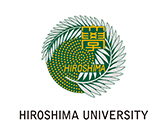
Hiroshima University
Hiroshima University was established in 1949, four years after the first atomic bombing in human history. At the opening ceremony held the following year, the first president of Hiroshima University, Tatsuo Morito, who had served as Minister of Education, presented his vision of “a single unified university, free and pursuing peace,” which later became the founding principle of the university.
The Graduate School of Humanities and Social Sciences
In light of new domestic and international trends in recent years, the Graduate School of Humanities and Social Sciences was inaugurated in April 2020, reorganizing the 16 divisions of six graduate schools (the Graduate Schools of Integrated Arts and Sciences, Letters, Education, Social Sciences, International Development and Cooperation, and Law) into four divisions with 14 degree programs. Rather than implying a narrowed scope of research, this indicates that we are seeking new and ideal states of humanities and social sciences that are in harmony with emerging societies. Sustainability and the realization of a peaceful world are among the shared challenges of people worldwide. We, in the humanities and social sciences, must also contribute to meeting these issues by creating social values and innovative methods for solving problems, based on the accumulated wealth of knowledge in these fields.
Background of the exchange
In this context, Hiroshima University began its exchange with the University of Münster in 1993, when Professor Hirotaka Yamauchi of the former Graduate School of Letters invited his collaborator Professor Ludwig Siep to give a lecture. In 2012 an interdepartmental agreement was signed, and Professor Hiroshi Goto and Professor Michael Quante have continued this educational and research exchange, with peace and reconciliation as keywords. In 2016 the agreement was upgraded to an inter-university level. In 2021, the newly established Graduate School of Humanities and Social Sciences took over the agreement.
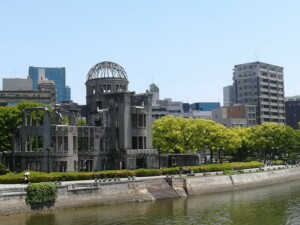
photo by Prof. Dr. Hiroshi Goto
Significance of participation
The participating organizations in MIPRI comprise universities and institution across the world, including the University of Münster in Germany, located in a place associated with the Treaty of Westphalia, which forms the cornerstone of international relations among modern sovereign states, and Hiroshima University, established in Hiroshima City after the bitter blow of the atomic bombing, in Japan which is one of the first countries in Asia to form a nation-state, at the same time as Germany. In contemporary international relations, where the framework of nation-states is globally prevalent and its limitations are severely experienced with no reprieve, it is highly significant for these two universities to jointly promote research and education for peacebuilding through the hubs of the Hiroshima Peace Research Initiative (Task Force) and mipri.
Visit www.hiroshima-u.ac.jp/en/gshs for more information
Universidade de São Paulo (USP)
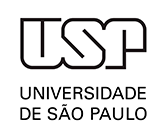
The Global Institute for Peace and Conflict Resolution (GLIP) the Conflict Resolution Center (CRC) were established to support the research activities that aim to understand the present requirements for an all-encompassing inclusive community. In addition, do GLIP and CRC work towards more sustainable solutions in conflict resolution and mediation in order to work towards global peace. To learn more please visit: glip.usp.br
Local Partners
In addition, mipri is also partners with the local community helping to grow a strong and sustainable network within the city of Münster.
Cluster of Excellence: Religion and Polictics
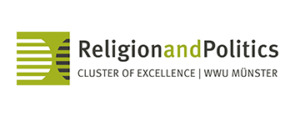
Since 2007 is the Cluster of Excellence “Religion and Polictis. Dynamics of Tradition and Innovation” dissecting the intrinsic ties between religion and politics spanning different eras and clusters. The cluster is one of a kind in Germany and one of the longest running programs among the excellence clusters in Germany.
The research network is the largest of its kind in Germany; and, of the Clusters of Excellence, one of the oldest and the only one to deal with the issue of religion.
For more information on Cluster of Excellence “Religion and Polictis” visit: https://www.uni-muenster.de/Religion-und-Politik/en/
Stadt Münster Marketing: Peace Office
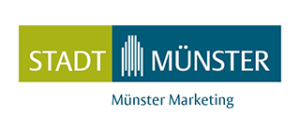
The signing of the Westphalian Peace in 1648 is an important feature in the city of Münster. This is reaffirmed by the founding of the Peace Office in 2016, which provides a point of contact for those in Münster whom are interested in the topic of Peace. The Peace Office is actively involving the civil and religions communities through the various working groups that are active. In addition does the Peace Office publish an exciting blog. For more information regarding the Peace Office visit: https://www.frieden-durch-dialog.de
Innovation Office AFO
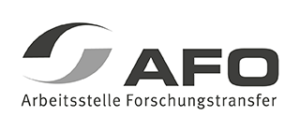
AFO creates bridges between the University of Münster and the local community (e.g. citizens and industry) to disseminate know-how in terms of knowledge and or personal with relation to technology and research with Münsterland. These bridges are meant to provide gate ways of translating the developed knowledge at the University of Münster into innovative inventions. Visit the AFO website for more information: https://www.uni-muenster.de/AFO/en/
Brazil Centre
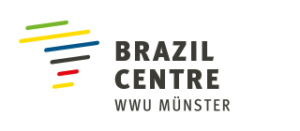
The University of Münster is very active in Brazil through the Brazil Centre. Through the well placed Liason Office in Sao Paulo is the University of Münster providing a support structure for Brazilians interested in the working and studying opportunities at the University of Münster. In addition, the Brazil Centre provides strategic support in order to strengthen the collaborative opportunities in order to increase the international visibility of the University of Münster in particular in Brazil. If you want to know more about Brazil Centre please visit: https://www.uni-muenster.de/Brasilienzentrum/en/index.html
Centre for Europe
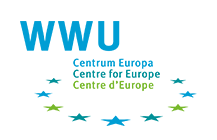
The Centre for Europe at the University of Münster is the liason between the university and Europe. The Centre for Europe provides support for University staff with regard to the extensive funding landscape within Europe. The Centre for Europe aims to connect, guide, validate and inspire Europe associated endeavors at the University of Münster. For more information please visit: https://www.ce.uni-muenster.de/en